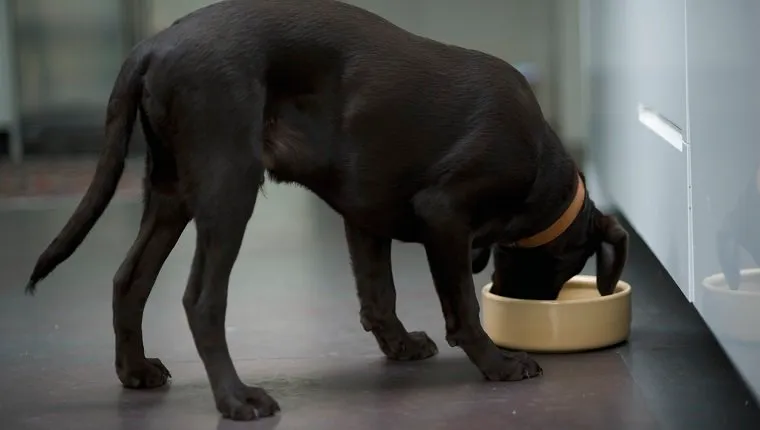Irritable bowel syndrome (IBS) in dogs is a condition that causes inflammation in the lining of the bowels resulting in upset of the stomach or intestines. It’s usually chronic and can lead to symptoms like nausea, upset stomach, or diarrhea.
Though the cause of IBS in canines isn’t always known, there are several possible factors that may affect the condition, including diet, allergies, bowel obstruction, or stress.
If you see the signs of IBS in your dog, you must consult your veterinarian for advice on how to treat and manage it. Here’s what you should know about the symptoms, causes, and treatments for IBS in dogs.
Symptoms Of Irritable Bowel Syndrome In Dogs

Symptoms of IBS in dogs generally appear in relation to the digestive system. These symptoms may come and go, but they tend to appear frequently and chronically.
Some IBS symptoms such as diarrhea and nausea are common issues that appear with other diseases and conditions, so you’ll need to consult your vet for a diagnosis and treatment.
Here are some symptoms that appear with IBS in dogs:
- Frequent diarrhea
- Mucus in feces
- Nausea and vomiting
- Depression or lethargy
- Discomfort when lying on the belly
- Loss of appetite and weight loss
- Abdominal pain and sensitivity to touch near the abdomen
- Constipation
- Bloating
Causes Of Irritable Bowel Syndrome In Dogs

The causes of IBS in dogs aren’t always known, and some flare ups can occur seemingly without a trigger.
Inflammation of the walls of the digestive tract is the general cause of the symptoms of IBS, but there are many factors that can aggravate the condition.
Here are several causes of IBS and its recurring symptoms:
- Stress and anxiety
- Fiber deficiency
- Allergies or food intolerance
- Bacterial infection
- Tumors in the digestive tract
- Impactions, constipation, and bowel obstruction
- Overeating
- Antibiotics
- Any change, irritation, or disturbance in the digestive system
Treatments For Irritable Bowel Syndrome In Dogs

Because the symptoms of IBS in dogs are often associated with other diseases and conditions, you’ll need to see your vet for tests and proper diagnosis before beginning treatment.
The treatment of IBS usually aims at reducing exposure to the causes associated with worsening symptoms.
For example, stress and anxiety are known factors that aggravate the condition. Taking steps to reduce anxiety or causes of stress in your dog’s environment can go a long way in preventing symptoms from occurring.
If there is an underlying medical issue such as an infection or tumor, that will also need to be treated accordingly.
Medication can be prescribed to alleviate symptoms. Antispasmodic medications help to calm the stomach and intestines, and anti-diarrhea drugs can help your dog pass solid stool.
There are also medications to treat bloating, gas, and constipation. You may want to ask your veterinarian about more natural solutions that reduce inflammation, as well.
Generally, continued treatment of IBS involves dietary changes. Diets that are high in fiber help maintain normal function of the digestive tract.
Dogs who have IBS should not be fed table scraps and food specifically for humans, as these can be hard on the digestive system. Having a source of fresh water will also help digestive function, as well as replacing fluids that may have been lost through diarrhea or vomiting.
Your veterinarian will be able to help you come up with a dietary plan that is right for your dog.
Does your dog suffer from IBS? How do you keep symptoms under control? Let us know in the comments below!









